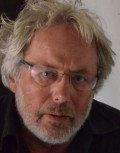Dr. Joachim Borner

I never did like the terms “environment” and “sustainability.” The words I like better were “design,” “change,” “reproducibility” and “self-empowerment.” They incorporate concepts of action rather than reaction; of recognizing the world as a historical system; understanding culture as a changeable web of meanings that need to be interpreted and shaped – as in the culture of climate awareness; of modulating the future with a sense of the possibility, and hence formulating the sense and the reason for responsibility; of introducing controversy as a method of communication into society, and using the “recording system of the Internet” as a possible cultural technique for the deliberation of development decisions. Communications for and about sustainable development becomes sustainable by way of its participatory character and by way of its integrative form which combines cognition and emotion, science and art….
Today, after a long lifetime of learning, I am starting to understand this difficult array of concepts. The economic cybernetics with which I started out has failed due to the lack of any “common language” of the participating disciplines; the co-world learning of Rudolph Bahro was improved in the course of the study of political economy. Vladimir Vernadsky’s noosphere, Ernst Bloch’s hope, Hans Jonas’ imperative of responsibility, Karl Polanyi‘s great transformation, André Gorz, and Karl Marx’ Grundrisse, jumpstarted my thinking. To them were added the models of the Club of Rome, the works of Robert Streibel and Lothar Roos, and the other perspectives and ways of thought of the study of engineering; and finally, later, the scientific eco-systemic focus. The questions I formulated were always oriented toward humankind in nature, and the rules of the game between people who were directing and designing metabolism. The answers were however always disciplinary and didn’t explain, for example, what climate is. The research and scientific principle of trans-disciplinarity was the work of the devil – and still is in many scientific teaching institutions and schools of thought.
A really good scientist is always also a pioneering thinker. And the pioneering thinker can only be someone who comprehensively understands reality and the living world. The guideline is: form follows function – and real experiments! I learned that rapidly in the East German chemical industry, including the consequences that a “really good scientist” should include in his planning (a professional ban, for example). I learned that at the Bauhaus in Dessau, in the transformation projects on the Garden Realm in Industry, in the Bauhaus educational searching processes with Peter Jenny and Rolf Kuhn, and when participating in the construction of the inter-university and interdisciplinary postgraduate study program in environmental protection and environmental sciences at the Humboldt University of Berlin. I learned through dialogue with the environmental change agents of the sciences and the arts: Binswanger, Diefenbacher, Jänicke, Succow, Trepl, Sukop, Schenkel, Busch-Lüty, Gerlach, Bahro, Kraft, Hübler, Leiberg, Siegert …. and in Belgium, Canada, Peru, the USA, Chile and Argentina.
At KMGNE we have found a good solution for breaking out of the structures and mentalities of universities without having to abandon the idea of the university. The Collegium may thus be one of those academic institutions which see its example in an institution whose name has come to stand for an entire genre: the Institute for Advanced Study at Princeton; founded in 1930. The goal of such an institute is to give (young) international scientists, artists and experts the chance to address, through intercultural dialogue, issues such as climate culture, the study and communication of transformations and sustainable development.
Fields of work: Education and Communications for Sustainable Development; Educational Landscapes
Contact:
Email: jborner@kmgne.de
Phone: 030 / 29 367 941




